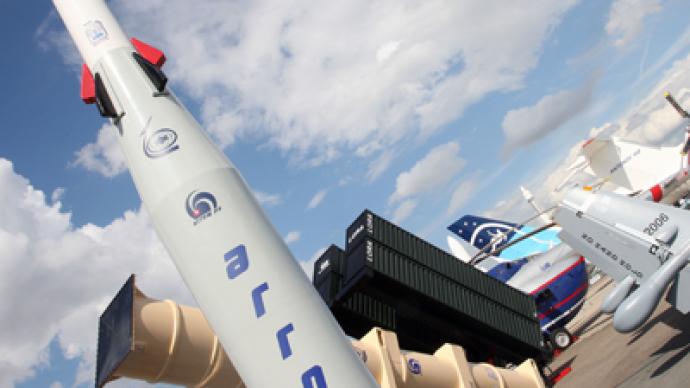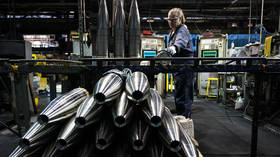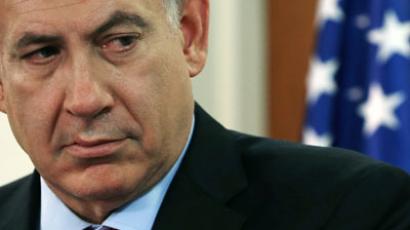Israel upgrades missile shield over Iran, Syria fears

Israel is upgrading its ‘Arrow II’ missile shield over fears of possible attacks by Iran and Syria. The ‘Block-4’ upgrade is currently being installed and deployed across the country, a senior Israeli defense official said on Sunday.
The US Missile Defense Agency and the Israeli Missile Defense Organization completed a successful test-run of the Block-4 in February. The upgrade, which has been in development for over four years, boasts greater accuracy and the ability to intercept missiles even further away."It is part of the technological race in the region," Reuters said, citing an Israeli official who declined to be named due to the controversial nature of the program.The upgrade included improvements in Arrow’s software, hardware, sensor array and command and control systems, the official told Haaretz. This development should be viewed as part of the complex geopolitical relations between Israel, Iran and Hezbollah, the newspaper reported, citing “exclusive details” provided by the Defense Ministry. The announcement came the day after Iran said it successfully test-fired an upgraded version of its Fateh-110 short-range ballistic missile. This new missile platform is “meant for defense,” but is capable of destroying both land and sea targets with the same “pinpoint precision,” Iranian officials said.Israel fears a conventional military attack by Iran, as well as a possible chemical weapon or Scud missile assault by Syria, Tel Aviv said.Israeli Defense Minister Ehud Barak, and the ministry's Director-General Udi Shani, made funding of missile and rocket defense systems a top priority, Haaretz reported.The US has been a longtime investor in the development of Israel’s missile defense shield, with the Pentagon and Boeing acting as key partners for the project. More than half of Arrow’s nearly $3 billion price tag has been paid for by Washington. US companies have also assisted Israel in research and development for the Arrow system.For its assistance in underwriting the project, Washington is free to draw on Israel’s missile defense technology for its own use, the Israeli official said: "The policy of the [Israeli] Ministry of Defense is to provide all data to the US, for the security of the US, including on targets, interceptors, radars and command and control.”The Arrow system has been in service for 12 years, after the first Arrow battery was declared fully operational in October 2000. The Arrow batteries are considered one of the most advanced missile defense programs currently in operation anywhere in the worldJerusalem is developing the Arrow III for planned deployment in 2014 or 2015. Unlike previous generations of interceptors, the proposed Arrow III system will engage incoming missiles in space, using detachable payloads that zero in on their target.With Israel’s Iron Dome system for intercepting short-range rockets and artillery shells now operational, Israel is working on even more powerful interceptor technology, known as David's Sling or Magic Wand, due to be deployed next year.
Unlike previous generations of interceptors, the proposed Arrow III system will engage incoming missiles in space, using detachable payloads that home in on and destroy their target.The Arrow batteries are considered one of the most advanced missile defense programs currently in operation anywhere in the world.The US has been a longtime investor in the development of Israel’s missile defense shield, with the Pentagon and Boeing acting as key partners for the project. More than half of Arrow’s nearly $3 billion price tag has been paid for by the US. American companies have also aided in research and development for the Arrow system.For its assistance in underwriting the project, Washington is free to draw on Israel’s missile defense technology for its own use, the Israeli official said: "The policy of the [Israeli] Ministry of Defense is to provide all data to the US, for the security of the US, including on targets, interceptors, radars and command and control.”With Israel’s Iron Dome system for intercepting short-range rockets and artillery shells operational, Israel is now working on even more powerful interceptor technology, known as David's Sling or Magic Wand, due to be deployed next year.















